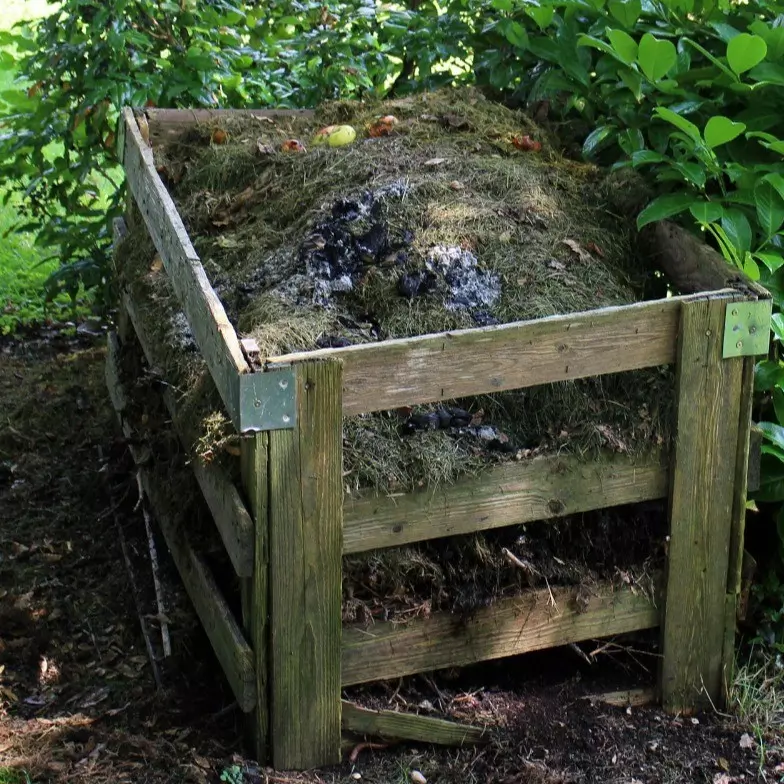What are examples of garden waste? This article looks at common examples of garden waste. Find out why we recycle garden waste and how garden waste is recycled.
Why recycle garden waste?
Garden waste is collected at the kerbside and then taken to what is known as a composting site. Here it is then transformed into a nutritious soil conditioner.
This conditioner is then used as a way to increase the nutrients in the soil, as well as give the soil's structure a boost in order to help plants grow in a healthier way. This conditioner can then be used for land reclamation, agriculture, or as an ingredient in some varieties of multipurpose compost that are available to buy at garden centres.
How is garden waste recycled?
Once the garden waste has made its way to the composting site, any material that is not compostable within the waste is removed. After this, the remaining waste is then shredded up and placed down in a lengthy pile to allow the substance to decompose. This is commonly done in the open air to allow for maximum decomposition.

The process that takes place at a composting site is essentially a much larger scale version of what takes place at a home compost bin.
The difference is that a composting site manages to speed up the process actively. However, you will find that due to the amount of material going through the facility, the temperature will be a lot hotter than the average household compost bin.
The temperatures in a composting site can reach up to sixty degrees celsius. The higher temperature can lead to enzymes and bacteria being put to work much quicker than normal, resulting in compost that is finished in just a few weeks rather than months.
The waste is turned and rotated frequently so that microorganisms can access the oxygen needed to help the material decompose. The high temperature will kill off any harmful microbes, as well as weed and plant diseases.
As the composting process comes to an end, the compost is screened so that any contaminants can be removed. The screening procedure also allows for the material to be graded for various uses. Compost that is found to be oversized or not properly decomposed can be put back through the composting process until it has broken down sufficiently.
This entire process will take between eight to sixteen weeks. However, this can depend on the final use of the compost.
WHAT ARE THE TYPES OF HOUSEHOLD WASTE?
Examples of garden waste
- Flower - Flower waste is commonly made up of annual flowers that have dried up and no longer serve a purpose to the garden owner. Overblown flowers can be clipped and used for flower waste. Many gardeners will remove the cluster from the overblown flowers to facilitate the plant's healthier and faster growth. Flower waste is completely biodegradable and can be used in composting.
- Plants - Plants can also be considered a type of green waste. Gardeners will usually remove all unwanted and undesired plants that are no longer producing and no longer have a purpose. For example, vegetable plants or weeds. Plant waste is completely organic, meaning it is perfect for composting.
- Litter - Waste products that are disposed of improperly, without consent, and at inappropriate locations are named litter. When it comes to garden waste, litter is substances such as wood chippings or other small particles that form after gardening activities. Litter degrades slower than weeds, flowers, and plants but can still be used for composting.
- Grass Cutting - Grass cuttings are fairly self-evident; anyone who has a lawn and attempts to regularly maintain it will know how much green waste is created through the task of cutting grass. The material is very easily compostable, and when left under the right circumstances, it can easily be left on the floor to disintegrate.
Home composting

Composting can be done in a home environment by leaving natural materials in a bin or in a heap. The method that you choose for your own composting site can depend on various factors, such as the size of your garden, the amount of compost you require, or the amount of material you have to be composted.
Animals and kitchen waste
For the majority of households, keeping domestic pets will not stop you from being able to use composted kitchen waste in your garden.
However, if a household keeps animals such as cattle, pigs, sheep, deer, goats, or other hoofed animals can not be allowed to go near the kitchen waste. This is because, unfortunately, the animals may be able to catch diseases from it.
If a home keeps poultry, the compost must be kept within an enclosed container so that the poultry does not come into contact with the composting material.
Composting or disposing of pond plants
There are some water and pond plants that can be damaging to other types of plants, as well as animals. One example of this would be the floating pennywort. This plant can grow around twenty centimetres per day, which can lead to blocking out sunlight and cutting oxygen for other animals and plants.
If you are a pond owner and the time comes to thin out your pond, it can be very helpful to dispose of your plants through the composting process. We would not recommend dumping the plants in the wild as this can lead to the plants making their way into other ponds and streams, and begin spreading again.
Get in touch today if you have any garden waste that needs collecting and disposed of correctly in Maidstone and Kent. Our experience and professionalism can help alleviate any stress or concerns you have concerning wastage.


